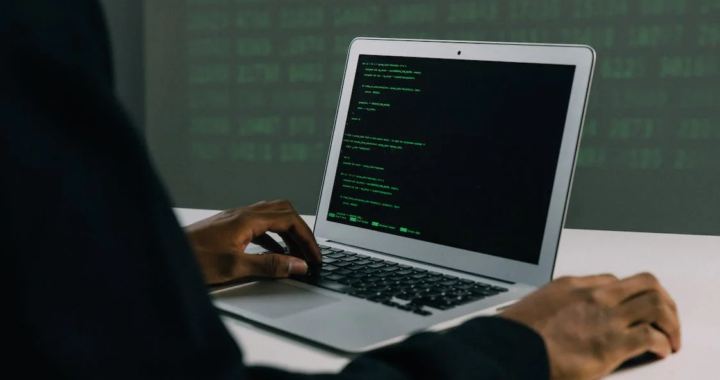Welcome to Eclipse Forensics, where decoding digital trails is our expertise. As digital forensic experts, we specialize in unraveling complex networks through meticulous analysis, leading the charge in network forensics. If you’re navigating the maze of digital evidence and seeking reliable solutions, you’re in the right place.
If you need assistance in decoding digital trails, reach out to Eclipse Forensics for expert guidance.
Exploring Network Forensics
Network forensics, a crucial facet of digital forensic services, delves deep into the intricate web of digital footprints. It involves the collection, analysis, and interpretation of data traversing computer networks. As forensic computer analysts, we scrutinize network traffic, seeking clues and evidence left behind in digital interactions.
Understanding the Landscape
In today’s digital landscape, understanding the nuances of network forensics is paramount. Every digital interaction leaves a trail, and our expertise lies in unraveling these trails meticulously. From identifying unauthorized access attempts to tracing data breaches, network forensics plays a pivotal role in uncovering crucial evidence.
Explore the realm of network forensics with Eclipse Forensics to gain insights into the digital trail analysis process.
Tools and Techniques
To decode these digital trails effectively, we utilize cutting-edge tools and techniques. Advanced software aids in capturing network packets, while forensic analysis software helps decode and interpret the captured data. These tools, combined with the expertise of our digital forensic team, enable us to reconstruct digital events and uncover hidden evidence.

1. Packet Capture Tools
Network forensics heavily relies on the capture and analysis of network packets. Eclipse Forensics utilizes advanced packet capture tools capable of intercepting and recording network traffic in real-time. These tools capture packets traversing the network, capturing critical information such as source and destination addresses, protocols used, timestamps, and payload data.
2. Forensic Analysis Software
Captured packets hold a treasure trove of information, but extracting meaningful insights requires specialized forensic analysis software. Eclipse Forensics employs industry-leading forensic analysis tools designed specifically for dissecting and interpreting captured network data. These tools facilitate the reconstruction of network sessions, allowing our experts to analyze communication patterns, identify anomalies, and extract relevant evidence.
3. Network Traffic Analysis
Analyzing network traffic patterns is pivotal in deciphering digital trails. Eclipse Forensics utilizes specialized tools for network traffic analysis, enabling the identification of irregularities or suspicious activities. By examining traffic volume, protocols, session durations, and data transfers, our experts can discern unusual behavior indicative of potential security breaches or unauthorized access.
4. Deep Packet Inspection
Eclipse Forensics employs deep packet inspection techniques to uncover hidden evidence within network packets. This involves a granular examination of packet contents beyond the header information. By analyzing packet payloads, our experts can uncover encrypted data, malware signatures, command strings, and other critical information that might otherwise remain concealed.
5. Timeline Analysis
Creating a chronological timeline of digital events is crucial in reconstructing incidents. Eclipse Forensics utilizes timeline analysis tools that organize captured data into a coherent chronological sequence. This enables our experts to visualize the sequence of network activities, identify the sequence of events leading to an incident, and pinpoint crucial moments for detailed investigation.
6. Expertise in Digital Forensic Team
While tools are essential, expertise is paramount. The proficiency of Eclipse Forensics’ digital forensic team complements these tools. Our experts possess in-depth knowledge of network protocols, cyber threats, and forensic methodologies. Their expertise allows for contextual understanding, accurate analysis, and effective interpretation of data obtained through these tools.
Learn about the specialized tools and techniques utilized by Eclipse Forensics in network forensics analysis.
Challenges and Solutions
While decoding digital trails is pivotal, challenges often arise. Encrypted data, sophisticated cyber-attacks, and evolving technologies pose hurdles. However, at Eclipse Forensics, we embrace these challenges, employing innovative solutions and staying at the forefront of technological advancements to overcome them.
The landscape of network forensics is riddled with challenges, but addressing these hurdles is essential for comprehensive and accurate analysis. Let’s explore these challenges and the innovative solutions adopted by Eclipse Forensics.
Challenge 1: Encrypted Data
Encryption poses a significant challenge in network forensics. While it serves as a crucial security measure, encrypted data can obstruct forensic investigations. Encrypted communications, whether through secure protocols or end-to-end encryption, can render data unreadable without the decryption keys.
Solution:
Eclipse Forensics employs a multifaceted approach to tackle encrypted data challenges. Advanced decryption techniques, when legally permissible, are utilized to decipher encrypted information. Additionally, our experts specialize in identifying metadata, traffic patterns, and other contextual clues that might provide insights, even when the data itself is encrypted.
Challenge 2: Sophisticated Cyber-Attacks
Cybercriminals continually refine their tactics, utilizing sophisticated methods to evade detection and cover their tracks. Advanced persistent threats (APTs), zero-day exploits, and polymorphic malware present formidable challenges in reconstructing digital trails.
Solution:
At Eclipse Forensics, our team of digital forensic analysts keeps pace with the rapidly evolving threat landscape. We employ a combination of cutting-edge forensic tools and deep expertise to detect and analyze traces left behind by these sophisticated attacks. By leveraging threat intelligence and reverse engineering, we decode these intricate trails, ensuring a comprehensive understanding of the attack vectors and methods employed.
Challenge 3: Evolving Technologies
The rapid evolution of technology introduces complexities in network forensics. New communication protocols, IoT devices, cloud-based services, and decentralized networks create diverse data sources and formats, making it challenging to collect, interpret, and analyze data consistently.
Solution:
Adaptability is key. Eclipse Forensics invests in continuous learning and development, staying abreast of emerging technologies and evolving trends. Our experts undergo regular training and skill enhancement to navigate this dynamic landscape. Additionally, we utilize versatile forensic tools capable of analyzing various data formats and sources, ensuring that our analysis remains comprehensive and adaptable to evolving technologies.
Discover how Eclipse Forensics tackles challenges in network forensics, ensuring comprehensive analysis and accurate results.
The Importance of Network Forensics
The significance of network forensics extends beyond investigations. It aids in preventing future breaches, fortifying digital security measures, and mitigating risks. Understanding the digital footprints left behind empowers businesses and individuals to strengthen their cybersecurity posture.
Preventing Future Breaches
Network forensics acts as a proactive shield against potential breaches. Scrutinizing past incidents and analyzing digital footprints provide invaluable insights into vulnerabilities within a system. Understanding how intruders gained access, the methods used, and the paths taken allows organizations to patch these loopholes, fortifying their networks against future attacks.
Moreover, through continuous monitoring and analysis of network traffic, anomalies can be detected in real-time. Suspicious activities or deviations from normal behavior patterns can be flagged promptly, enabling immediate response and preventing potential breaches before they occur.

Fortifying Digital Security Measures
Understanding the intricacies of network forensics enables organizations to bolster their digital security measures. By identifying weak points in the network infrastructure and implementing robust encryption protocols, access controls, and firewalls, businesses can create a more resilient defense against cyber threats.
Additionally, network forensics aids in establishing comprehensive incident response plans. With a thorough understanding of how attacks unfold and the pathways taken by cybercriminals, organizations can create targeted and effective response strategies, minimizing the impact of breaches.
Mitigating Risks
Digital footprints left behind in network activities contain a wealth of information. Analyzing these trials not only helps in understanding past incidents but also in predicting and mitigating potential risks. By identifying patterns and trends in network traffic, businesses can anticipate and proactively address potential threats before they escalate.
Moreover, compliance and regulatory requirements necessitate a robust approach to risk mitigation. Network forensics assists in ensuring adherence to these standards by providing detailed insights into the security posture of an organization, enabling them to align with industry regulations.
Contact Eclipse Forensics to learn more about how network forensics can enhance your cybersecurity strategy.
Strengthening Cybersecurity Posture
A comprehensive understanding of digital footprints empowers businesses and individuals to adopt a proactive stance toward cybersecurity. By comprehensively analyzing network activities, they gain visibility into their digital ecosystem, allowing them to make informed decisions about security measures.
This approach cultivates a culture of vigilance and preparedness against cyber threats. Educating employees about the significance of network security and the potential risks associated with their digital interactions becomes pivotal. With this awareness, individuals can become active participants in safeguarding networks, thereby contributing significantly to the overall cybersecurity posture.
Decoding digital trails through network forensics is a complex yet indispensable aspect of digital investigations. At Eclipse Forensics, our team of digital forensic experts navigates this intricate landscape, uncovering crucial evidence and providing unparalleled expertise in network forensics.

If you require assistance in deciphering digital evidence or seeking network forensic services, reach out to Eclipse Forensics for comprehensive solutions.
Navigating the world of network forensics requires expertise, and Eclipse Forensics stands ready to assist, decode, and analyze digital trails, ensuring a thorough understanding of digital interactions for individuals and businesses alike.

























